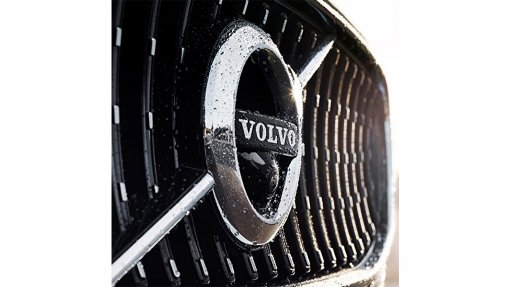
Volvo Cars has launched Volvo Cars Energy Solutions, a new business unit that will offer energy storage and charging-related technology and services.
The Swedish car maker says electric cars and their batteries can do much more than eliminate tailpipe emissions, as they also have the potential to power homes, appliances and even return power to the energy grid.
Volvo Cars says bi-directional charging is a technology that allows an electric car to give back extra battery power to a compatible grid, helping to balance the grid during peak hours and reducing the need for fossil-generated electricity.
“Our new flagship, the fully electric EX90, will be the first Volvo car equipped with all the necessary hardware and, over time, software, to enable bi-directional charging and direct energy storage from solar,” says the manufacturer.
Together with Göteborg Energi Nät AB, the local grid company in Gothenburg, Volvo Cars is launching a vehicle-to-grid (V2G) pilot programme that aims to test V2G technology on the local energy grid and in a home environment with real customers.
The pilot study deliberately uses a low-cost alternating current wallbox charger, as this should help accelerate widespread adoption of the technology.
The project aims to gain acceptance from the grid company involved, while also demonstrating to other grid companies that V2G programmes can provide tangible benefits.
As Volvo Cars aims to be a fully electric car company by 2030, the car maker believes it will bring “millions of electric Volvo cars on the roads in the coming years”.
“Our engineers have calculated that the total battery capacity of that fleet will reach around 50 GWh by mid-decade.
“While these cars will use several TWh in electricity each year, this energy consumption is flexible and can be moved in time via smart charging.
“At the same time, data from our Volvo fleet shows that the average daily drive in Europe uses less than 10 kWh, while 90% of all daily drives use less than 20 kWh.
“This means there is ample spare battery capacity left that can be used for other purposes, with the possibility of both financial benefits for our customers and significant climate benefits.”
“With bi-directional charging, you can use your car battery as an extra energy supply, for example to provide power to the grid, your home, other electric devices or another electric Volvo car,” says Volvo Cars Energy Solutions head Alexander Petrofski.
Volvo Car South Africa says the EX90 will make its debut in South Africa next year, along with the smaller electric EX30.